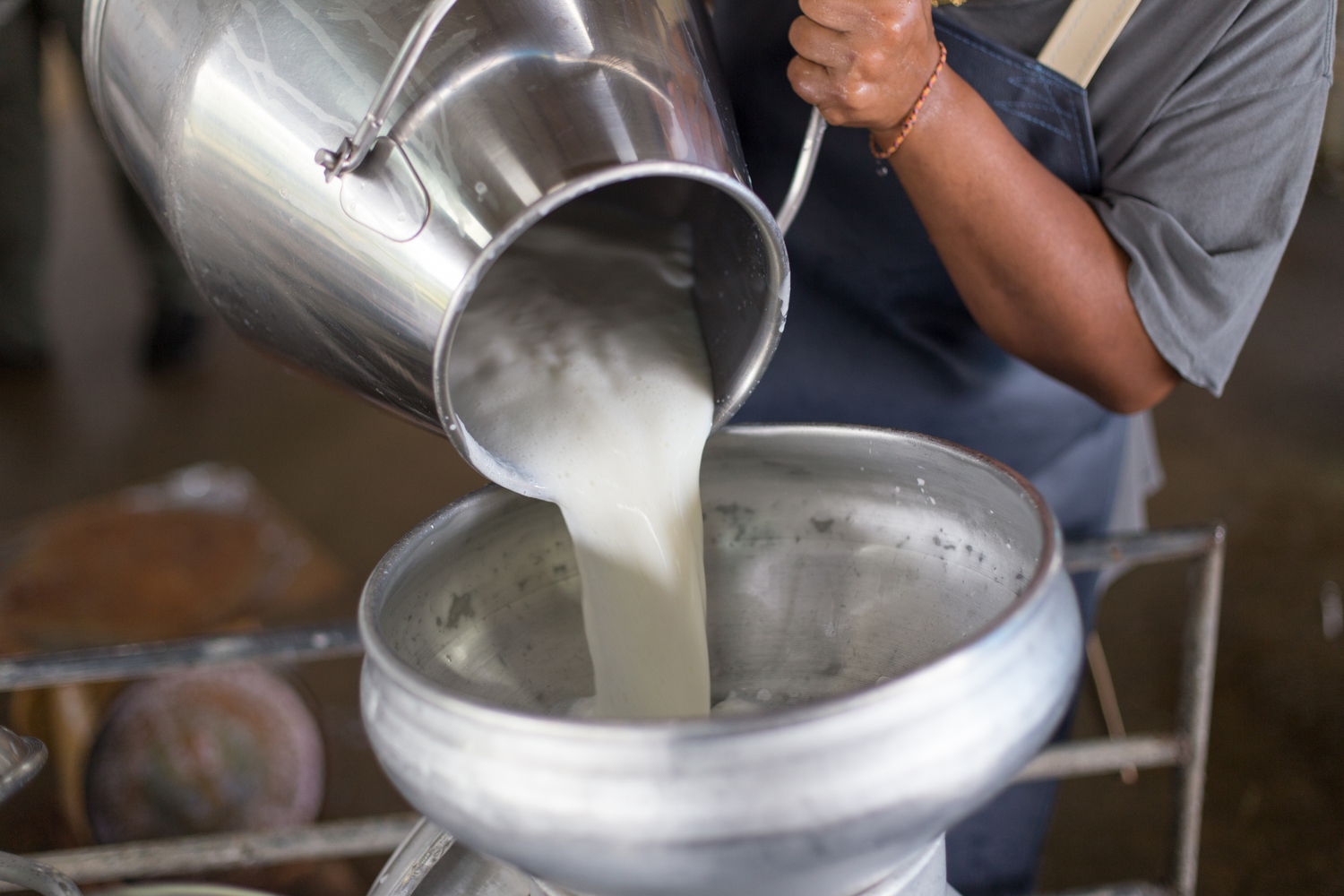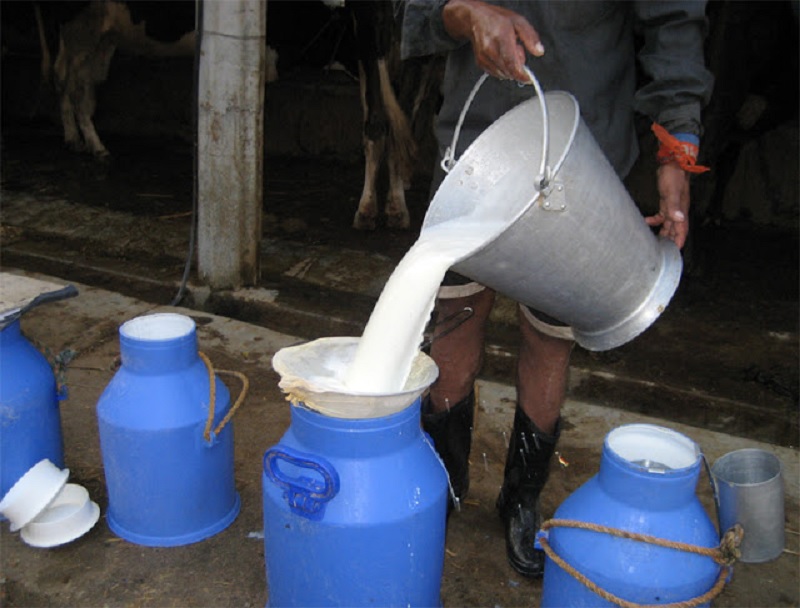0%

A dairy farmer pours milk in a can. (File for Representation)
KATHMANDU: The lockdown enforced to stem the coronavirus spread has hard hit dairy business.
According to the Nepal Dairy Association, milk worth approximately Rs 100 million has gone wasted since the enforcement of lockdown on March 24.
“Only 35% of the total milk production has access to market these days, 65% is wasted,” Prahlad Dahal, the General Secretary of the Association told Khabarhub. Approximately Rs 100 million has been the loss, according to him.
Although the COVID-19 impact on the dairy industry seemed less lethal in the first few days, the closure of hotels and restaurants has resulted in a massive decline in milk consumption.
“We used to make milk from the powder in the beginning. And whenever milk would be scarce, powder used to compensate it,” Dahal said adding, “But this time, even in the peak season this industry has been smashed very badly.”

He said the association still has a stock of dairy products worth Rs 5 billion. However, it will expire in 6 months.
The World Milk Day — formerly a great day for dairy farmers — was observed last week. With the prospect of enhancing milk consumption, the day has been observed as a special day since 2011.
Unlike other years, the day was observed in a different manner, not by organizing events but by distributing milk products.
The National Milk Development Board had instructed all concerned to distribute milk products to all 7 provinces and district committees.
According to the board, it distributed milk and milk products to hospitals, childcare centers, hospice, quarantine centers, and security forces and health workers.
According to board sources, the senior citizens living in Kathmandu’s Mandikhatar-based Divya Sewa Niketan Ashram was distributed milk for a week.
Kathmandu Valley consumes 75 thousand liters only
The Dairy Development Corporation, which used to sell around 100 thousand liters every day, sells only 73 thousand liters in the Valley these days.
DDC, the only public corporation in the industry, says that there is no problem in milk production though there is a challenge in market manipulation.“
The lockdown has not impacted the milk production, however, the problem is in the market management,” DDC’s Deputy General Manager Rajendra Adhikari said.
“Even though milk plays a significant role in enhancing immunity against coronavirus and other diseases, the consumption has not gone as high as expected,” Adhikari said, “Rather it has declined though the Valley population is still the same.”
Asked to clarify the allegations against DDC for ‘providing coronavirus allowance to staff by reducing the subsidies meant for the farmer,’ Adhikari dismissed those allegations as baseless.
“There was a price hike of milk on September 7, 2019. We have been promoting sales in the same price, and we do not have plans to reduce the price given to the farmers,”he said.
Dairy Association’s General Secretary Dahal says that April to September is the peak season for milk production and collection but the consumption is disrupted due to the pandemic.
Meanwhile, Khem Raj Paudel, 70, a farmer of Nawalparasi, who produces more than 500 liters milk every day has been making ghee during the lockdown.

“Sometimes 150 liters milk gets access to the market, but mostly, it gets no market at all,” Paudel shared his grief to Khabarhub, “When there is excess milk, it’s difficult to make ghee as well.”
He said lockdown has made it difficult to arrange the fodder for the cows.
“The milk market is down, livelihood is turning difficult,” Paudel added with a sigh, “It seems there is no way out except chasing the cows away.”
Some farmers say that they are yet to receive the money of the milk sold earlier. Nearly 5,000 professional farmers are at a loss.
“The problem is not confined to the milk market alone,” spoke Paudel representing the woes of all such farmers. “We wonder whether to let the cows starve at home or chase them away.”